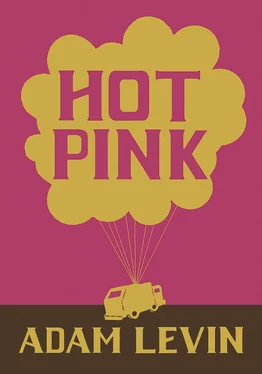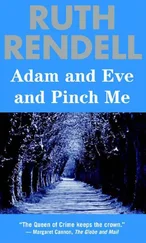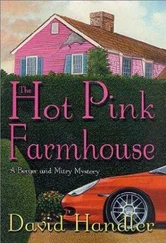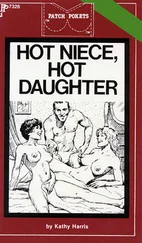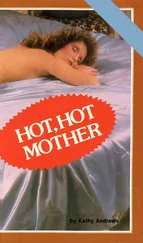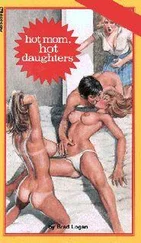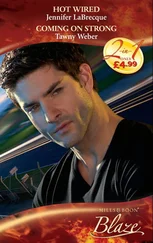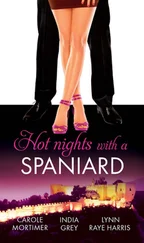When the relief wore off, I used my fist again.
And Tell again yelled out for me to stop. And again I was blind and leaning on my window. And when I could see again, I could see that Tell wasn’t looking at the road, but looking at me, and the car was about to collide with something black. It was too late to stop.
The collision was quiet, a clop without resonance. The thumping of the anti-lock brakes was louder.
We ran to the gasping animal and knelt. It lay on its side on the yellow line, trying to bark, trying to growl, coughing and squealing. “It’s breathing,” Tell said. Its spine was severed, even I could see that. “There’s an all-night vet on Willow,” she said.
I called the vet. They didn’t have an ambulance.
I called the cops. They told me an hour.
“But it’s breathing,” I told them.
They told me an hour.
“Help me,” Jane said. She was trying to lift it. It made awful, human sounds. Moaning, pleading sounds.
“Let go of it.”
“It’s a dog.”
“You’re hurting it, Jane.”
I got into the car.
“Just help me,” she said.
“Fucken move,” I told her, and turned the key. She got out of the way.
Reader, I ended it.
The way I heard it, this guy, Donald, who was pathologically shy, wrote the world’s greatest love letter — four lines long, a mere seventy words — to a girl called Janet, with whom he’d made slightly longer than average eye contact on at least three separate occasions. (After what may have been the second, he went to the bathroom and discovered in the mirror a smear of red ink on the bridge of his nose.) Donald wrote the letter in flawless calligraphy on supple paper, then folded it into an origami duck, and at lunch the next day — Donald and Janet worked at the same office — he hung back a couple minutes till all of his fellow employees had cleared out, at which point he walked the duck across the room and mistakenly stood it on the chair of Chrissy’s cubicle, which shared a partition with Janet’s.
Just a couple minutes earlier, Janet, a secret origami enthusiast who was even shyer than Donald, lonelier too, and whose feelings for Donald were entirely mutual, had noticed, on her way out the door to lunch, that Donald had not yet risen from his cubicle. Janet thought that maybe if she could dally long enough to bump into Donald with no one else around, they might finally get up the nerve to speak to each other, or, failing that, they could make some more eye contact, maybe even within the close quarters of the elevator, and maybe, were the elevator crowded enough, she could brush Donald’s arm with a shoulder. So Janet lingered by the water fountain, fake-drinking water, and saw Donald place something on her chair. She was instantly sweaty. What could it be? She ran to the ladies’ room and washed her hands twice. By the time she returned, Donald was gone. She went to her cubicle, discovered her mistake. Her chair was empty. Donald’s gift was for Chrissy. An origami duck. Janet picked it up, turned it in the light. What beautiful work! Not a crease that wasn’t straight. Not the slightest hint of an unintended shadow. Under the wings and along the bill’s edges, words inscribed in impeccable calligraphy appeared between the elegant folds: love and eyes and bashful and you and glue and us and forever . Other words appeared on the sides of the neck and the webbing of the feet, but Janet, remembering they weren’t for her, chose not to read them, and, lest she obey her terrifying impulse to crush the duck against her chest and jump out the window, plunging to her death, she set it back down on the seat of Chrissy’s chair and left the building, as if in a trance. She walked a block, not knowing to where, then walked another block, still unknowing. In the middle of the third block, she settled on the lake. She would go to the lake and look at the waves, the sight of which always gave her comfort in summer. The lake was east and east was left. She took a sharp left, into the street, where she was struck by a bus and instantly killed.
For lunch, Donald ate some egg-salad sandwiches. He’d prepared the egg salad the night before, as soon as he’d finished folding the duck, and this morning scooped enough to make four sandwiches into a sealable plastic container. He’d carried the container, along with utensils and disposable napkins, in a thermal lunchbox he’d bought for the occasion. The first floor of the building in which he and Janet worked featured a bakery that made his favorite brioche rolls. After purchasing four, Donald brought them to the park across the street, and, sitting on the ledge of the fountain, in the sun, he sliced three in half, spread egg salad on them, and ate them with gusto. He waited until the very end of the lunch hour to make the fourth sandwich, in order to ensure that it would be as fresh as possible. He would, upon returning to the office, as long as Janet didn’t seem repulsed by his letter, give her that sandwich. His last girlfriend, Terri, had sworn his egg salad was the finest egg salad she’d ever eaten, and his friend had liked it, too. Donald, if he did say so himself, agreed that he made a mean egg salad, but he hadn’t once eaten it in over three years, not since just before Terri and his friend ran off to Connecticut together and became highly paid pharmaceutical representatives. A part of him had been worried that he might have lost his touch, but no sooner had he swallowed his first bite of sandwich than he realized he hadn’t.
He returned to the office a couple minutes late. Everyone was there but Janet.
Chrissy never realized the duck was a letter, but she thought that it might have been a gift from Janet, the dikey bookish girl she’d worked with who a bus killed — so sad — so she held on to the duck for sentimental reasons. Chrissy was lucky to be born with her genes and she knew it, too, so she was nice to everyone, including lesbians, just as long as they didn’t try anything creepy, since, first of all, lesbians were people too, and secondly she knew that no one stayed beautiful, you got old and saggy, and having a nice body was not a thing that lasted, but having friends was. Those were her values.
When she got home from work on the day Janet died, Chrissy set the duck on her knickknack tray’s edge, where it stayed till the first chilly night in fall, when the heat kicked on and the vent blew the duck all over the tray till its bill wedged between a pair of porcelain gorillas in T-shirts, hugging. Then, on the first warm night of spring (by which time Donald had long since hanged himself), Chrissy threw a party which got so fun that a dancing drunk guy fell down hard, knocking the knickknack tray to the floor. With the exception of the world’s greatest love letter, all the tray’s contents exploded on impact.
“You broke my knickknack tray,” Chrissy told the drunk guy.
“You sank my battleship,” the guy told Chrissy.
“You broke my knickknack tray,” Chrissy said.
The guy said, “Knickknack paddy wack, can’t you see that I love you?”
He worked the broom and she held the dustpan. The duck looked like garbage and they swept that up, too. They fucked all night long, fucked well for being drunk. The next night, sober, they fucked even better.
When you and I were young and in love, Tom and I would go to a twenty-four-hour diner in a basement at Western Avenue and Augusta. We’d sit at the counter there and eat fried eggs on small croissants nearly every weekday morning before work. Because we were regulars, the cook would occasionally surprise us with cheese squares melted on our sandwiches, gratis.
I still type all my letters and address the envelopes by hand. I still feel about origami the way I feel about mimes, unless you insist Harpo Marx is a mime. Harpo Marx I feel great about.
Читать дальше
